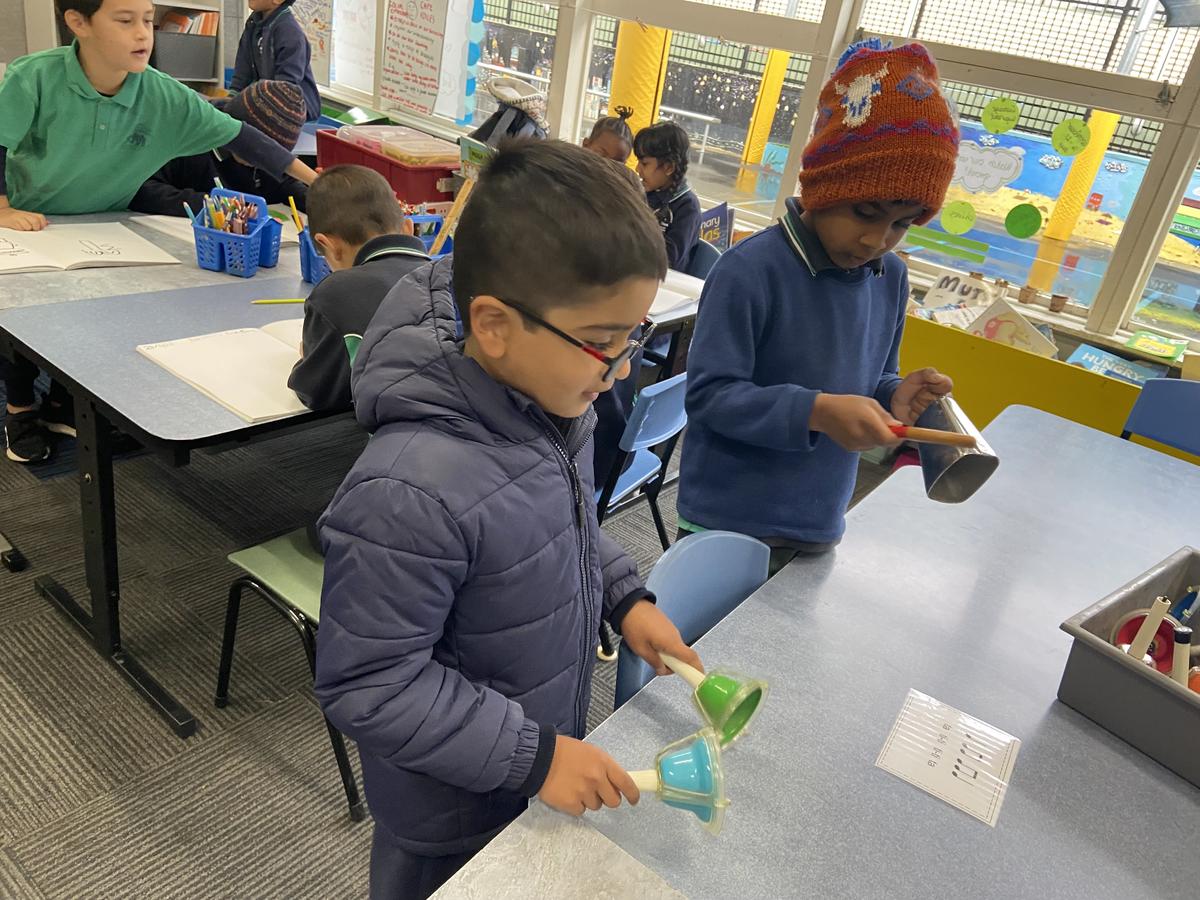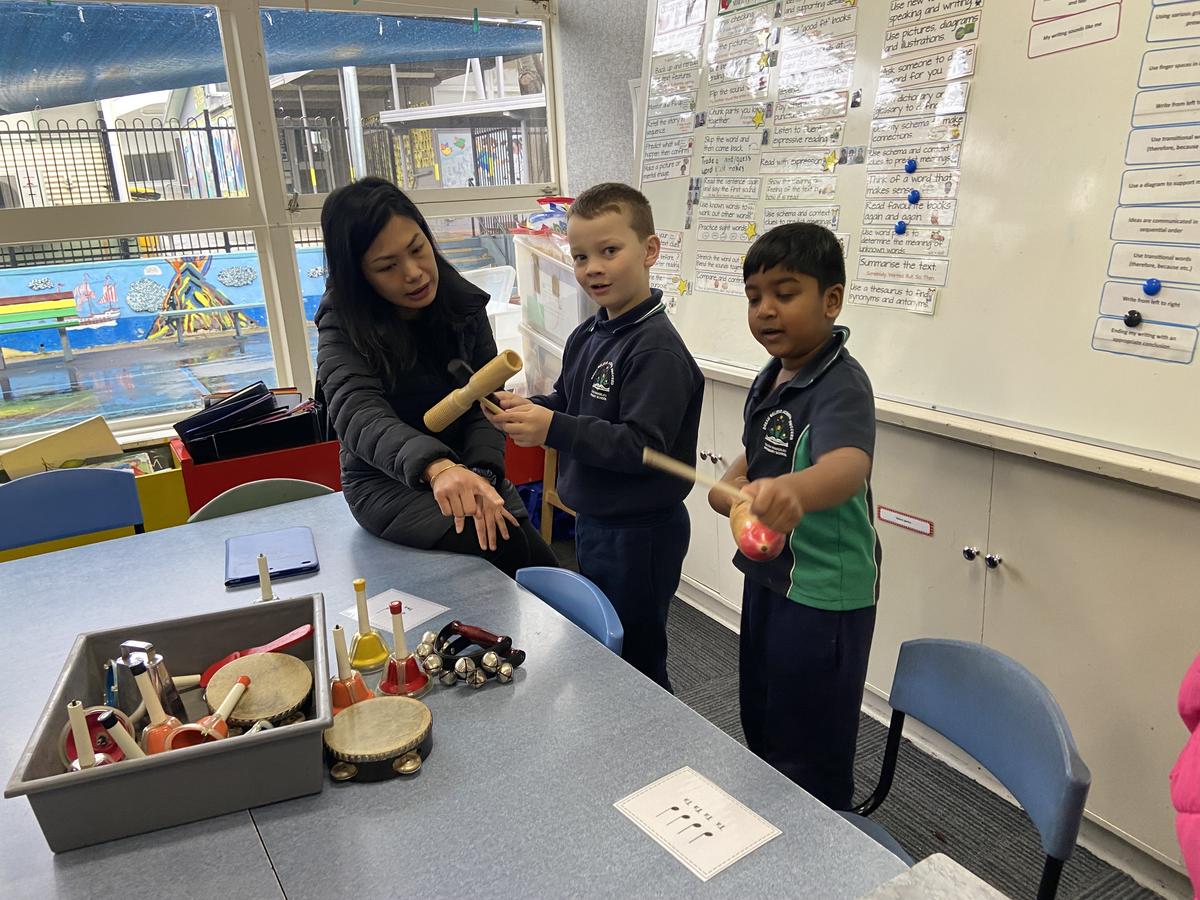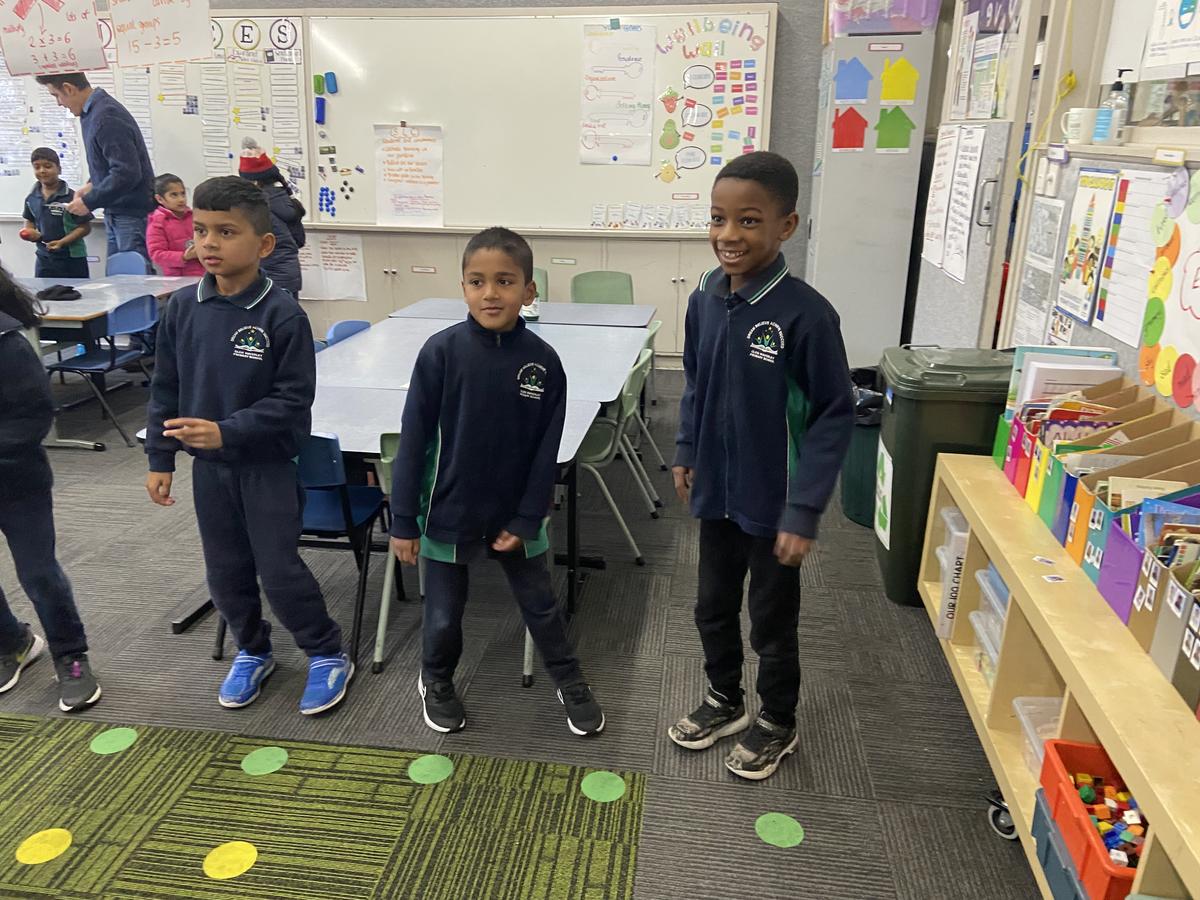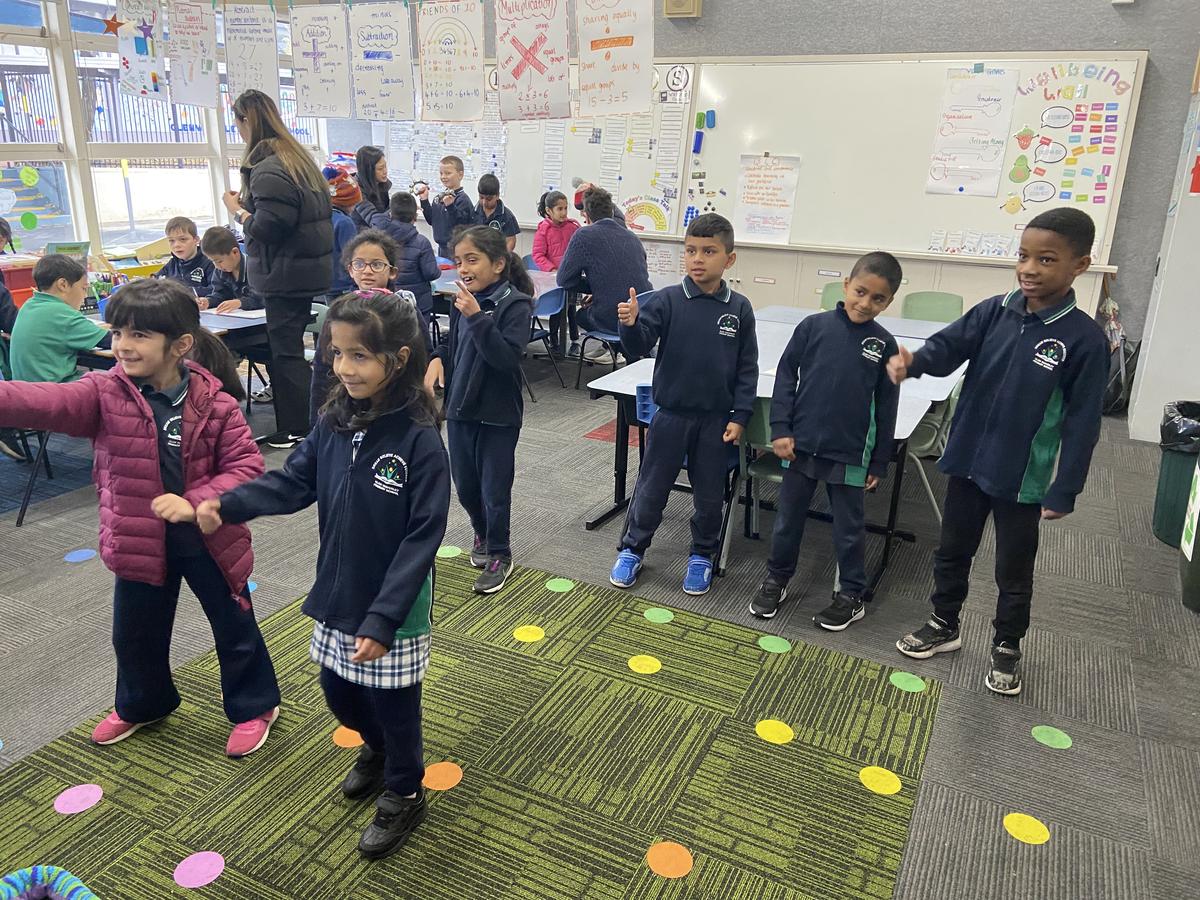Level 1 - Term 3
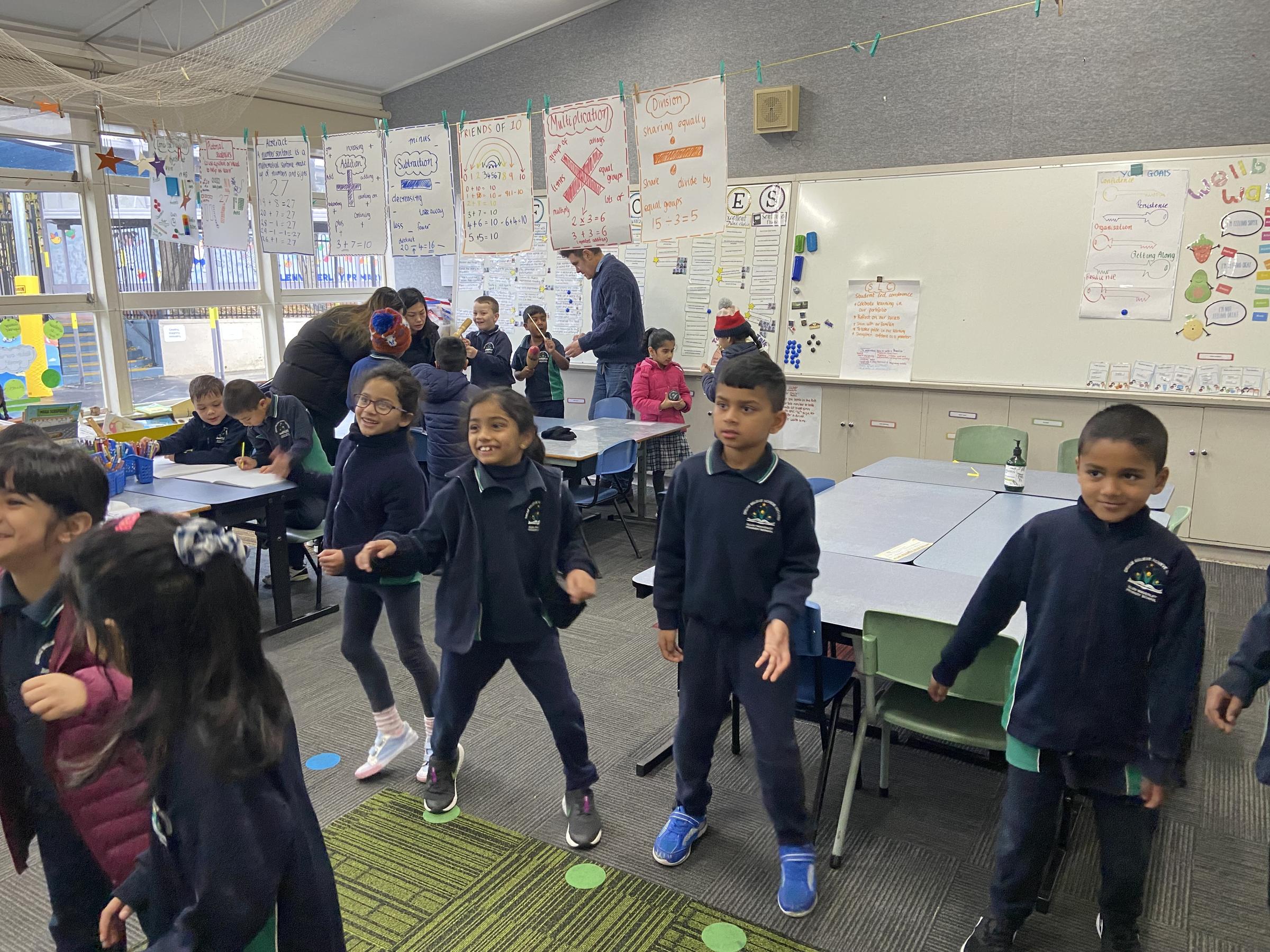
Dear Parents and Guardians,
Welcome back to another fabulous term of learning at Glen Waverley Primary School! We extend our welcome to all new families that have recently joined our community. Level One learners have made an excellent start, as they have excitingly reconnected with their friends, peers and teachers.
This term brings many highlights, such as the celebration of success through Student Led Conferences, as well as our 2021 School Production, ‘A Journey of Values’.
On behalf of all the Level One teachers, we thank our community for their support and feedback during the Learning from Home program.
Reading
Students will deepen their understanding of our CAFÉ approach to reading, through an added focus on Comprehension and Fluency strategies. Reading with expression, forming text connections, and inferring characters’ thoughts and emotions, will be strategies at the forefront of your child’s learning. Students will explore a range of texts, through the lens of our Inquiry unit centred around expression, communication and cultural understanding.
To support your child’s Reading and Viewing at home:
- Ask literal comprehension questions about a story’s characters, setting and events.
- Challenge them to make text-to-self connections and infer a character’s emotions.
- Encourage your child to read with expression, by varying their tone and volume to match characters and events within a story.
- Expose them to a diverse text types, such as, newspaper columns, emails, digital articles.
Writing
Students will deepen and further develop different writing styles, which includes recounts, letters and emails. All these types of writing have their own specific structure and are used to communicate and convey meaning. Students will learn VOICES strategies around Ideas and Sentence Fluency, to ensure their recounts are engaging. By writing letters and emails, they will learn to communicate a range of messages, through meaningful word choices and appropriate writing structures.
To support your child’s writing at home:
- Encourage your child to keep a diary and recount their daily experiences.
- Engage your child by showing different types of letters, including envelopes from older family members who still write letters and send them by post. Letters sent home such as bills are another form of communication and have a different structure.
Maths
Students have started this Term Three, learning about fractions as equal parts of a whole. They have explored pictorial representations of fractions, such as halves, quarters and eighths, and investigated their abstract form, with numerator and denominator. Over the coming weeks, students will return to Measurement and Geometry, focusing on durations of time and telling time on analogue clocks. They will transfer their understanding of fractions to the analogue clock face and language of time (half past, quarter-past, quarter-to). Students will also develop their Statistics and Probability skills through data and graphing. They will design questions to collect data and represent this data through concrete and pictorial displays. Finally, students will reflect on their understanding of the four operations through a range of hands on tasks and problems.
Strategies you can implement at home to consolidate their knowledge and skills:
- Explore how fractions are used in real life, for example, measurements in cooking (half a cup)
- Practise telling time on an analogue clock together and make connections to daily events.
- Encourage your child to ask closed and open-ended questions for data collection. For example, ‘Do people like apples?’ (closed) and ‘What fruits do people like?’ (open-ended).
Inquiry
‘How do we express ourselves?’ is our guiding question for Term Three Inquiry. Students will explore four forms of expression: Music, Art, Drama, and Dance. Through these forms they will learn how to express and communicate their emotions, ideas and beliefs. The 2021 School Production, ‘A Journey of Values’, will enable students to demonstrate these skills during their performance.
Furthermore, students will build their cultural awareness by experiencing a range of legends and folk tales from a range of cultures. They will form connections through unpacking these traditional tales to understand the meaning and morals behind them.
To support your child's Inquiry learning, here are some suggested strategies to use at home:
- Have conversations with you child about your family’s cultural stories.
- Encourage your child to explore the four forms of expression Music, Art, Drama and Dance.
- Take pictures and share them with your child’s teacher.
YCDI
In You Can Do It, students will continue to develop their Resilience, Confidence and Getting Along skills by learning to apply strategies to problem solve when faced with challenging situations. They will focus on the keys, Organisation and Persistence whilst deepening their understanding of school expectations and how to maximise their learning time. Students will further develop their understanding of the School Values Integrity, Initiative, Respect and Global Empathy.
To support your child's YCDI learning, here are some suggested strategies to use at home:
- Praise them when they display the School Values of, Integrity, Initiative, Respect and Global Empathy.
Have conversations with your child about how to problem solve in challenging situations.

